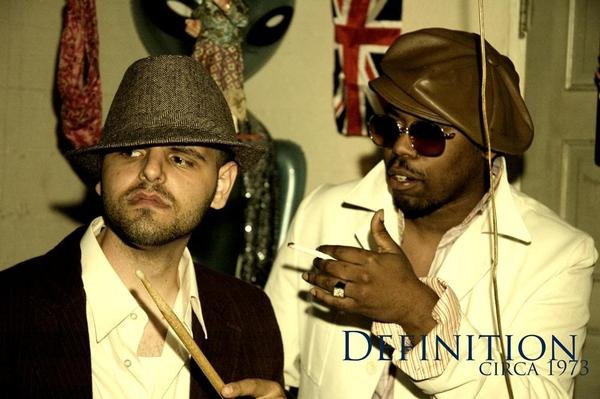
Discog-Define
In the ever-evolving world of music, where digital platforms and streaming services dominate, understanding the foundation and legacy of musical works has become more essential than ever. One of the most valuable tools for this understanding is the concept captured in the keyword: discog-define. But what does this term truly mean, and why is it significant in the music industry and beyond?
What Does Discog-Define Really Mean?
To discog-define something is to explore, categorize, and provide clarity on an artist’s discography. A discography refers to the comprehensive list of all the music an artist or band has released, including albums, singles, EPs, collaborations, and sometimes unreleased materials. The keyword discog-define encapsulates the act of making sense of an artist’s entire body of work — an essential activity for music historians, fans, collectors, and streaming platforms.
The Role of Discographies in Music Culture
Understanding the discog-define concept helps us appreciate how deeply interwoven discographies are with an artist’s legacy. For example, knowing the order of album releases allows fans to track an artist’s evolution. It helps listeners understand how early works influenced later masterpieces and how themes, styles, or production methods changed over time.

This ability to discog-define provides music lovers with a roadmap of an artist’s career. Without it, musical works would appear as fragmented creations, lacking context or connection.
The Digital Era and the Need to Discog-Define
With platforms like Discogs, Spotify, and Apple Music, access to music has become easier than ever. However, the sheer volume of available music can often lead to confusion. Here’s where the importance of discog-define resurfaces.
Fans and researchers rely on curated and structured databases to trace artists’ works chronologically. Whether you’re diving into the works of David Bowie, Beyoncé, or a niche underground artist, having a clear discog-define framework helps you understand the broader picture.
For instance, someone who wants to explore all the works of Radiohead would benefit immensely from a clear discog-define list — from their debut album Pablo Honey to their experimental works like Kid A and beyond.
Collectors and the Importance of Discog-Define
For music collectors, the discog-define process is sacred. Collectors often strive to own every version of a specific release — vinyl pressings, cassette tapes, deluxe editions, international versions, and more. Without a comprehensive understanding of an artist’s discography, such pursuits would be virtually impossible.
Websites like Discogs have capitalized on this demand. The platform allows users to contribute, edit, and maintain detailed discographies, showcasing just how integral the discog-define mindset is within music communities. These platforms thrive because users see value in an accurate, structured breakdown of musical histories.
How to Effectively Discog-Define an Artist’s Work
If you’re interested in learning how to discog-define your favorite artist’s discography, here are a few essential steps:
- Research Chronological Releases: Start by identifying the first known release and trace forward. This helps understand the artist’s musical journey.
- Include All Formats: Albums, singles, EPs, remixes, live recordings, and collaborations — everything counts.
- Cross-Check Sources: Use platforms like Discogs, AllMusic, and official artist websites to ensure accuracy.
- Note Production Details: Label, producer, release date, and contributors often add important context to the release.
- Visual Elements: Album covers and promotional artwork offer visual insight into the artist’s style and branding through different eras.
When you discog-define using this method, the result is a comprehensive, insightful, and historically accurate narrative.
The Academic and Industry Use of Discog-Define
Beyond fandom and collecting, the concept of discog-define is crucial for academics and music industry professionals. Researchers use discographies to study trends, genres, and social movements linked to musical eras. Labels and managers also rely on discographic records to plan reissues, anniversary editions, and remastered collections.
Documentaries and biographies also benefit from a well-researched discog-define structure. A properly structured discography can highlight milestones, critical reception, and cultural impact — all necessary for a well-rounded narrative.
Why Every Music Lover Should Learn to Discog-Define
Even if you’re not a collector or scholar, learning to discog-define brings a deeper level of enjoyment to music. It transforms casual listening into a journey of discovery. You start recognizing patterns — how a band’s sound matures, how lyrics shift based on personal or political influences, and how side projects reflect unexplored creativity.
Moreover, it brings a newfound respect for the artistry and hard work involved in producing music. The ability to discog-define also helps when recommending music to others, offering not just song suggestions but historical context.
Discog-Define in the Age of AI and Automation
As artificial intelligence becomes more involved in music recommendation and categorization, the discog-define concept remains important. Algorithms use discographic data to suggest new songs or predict future trends. Still, human curation and input are necessary to maintain accuracy, especially with new releases and underground scenes.
Ensuring that metadata is accurate — release years, featured artists, genres — makes a huge difference in how music is discovered and consumed. In this light, discog-define is not just a fan activity; it’s a vital digital function.
Final Thoughts: The Legacy of Discog-Define
The term discog-define may not yet be mainstream, but its relevance is undeniable. It represents the practice of identifying, organizing, and appreciating the structure of music discographies. From collectors to scholars, DJs to playlist curators, anyone with a deep interest in music benefits from a clear understanding of this concept.
As we move forward in an age where information is vast and rapid, taking the time to discog-define not only preserves musical history but enhances our collective experience of it. Whether you’re uncovering hidden gems or revisiting old favorites, the ability to contextualize music through discographies makes the journey infinitely richer.





